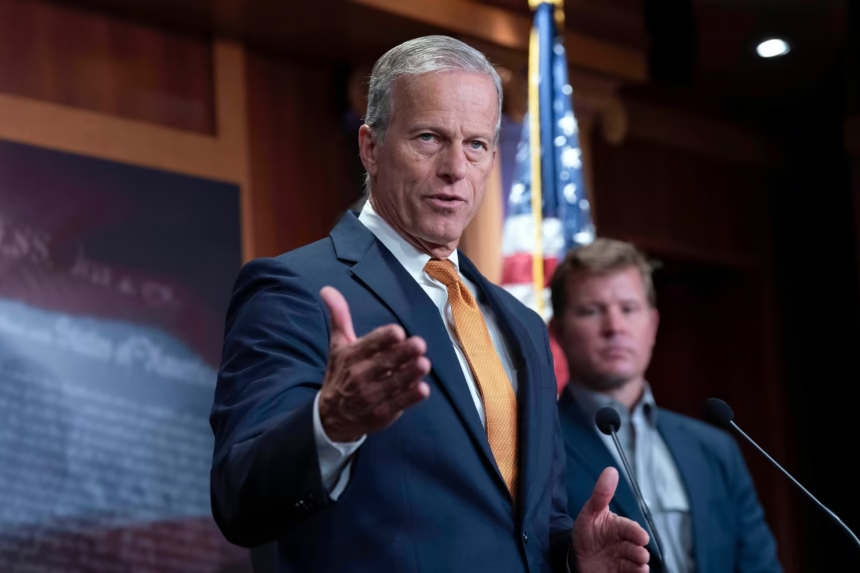WASHINGTON – A breakthrough in the Senate, propelled by a group of eight moderate Democrats crossing party lines, has set the stage for a potential end to the 41-day government shutdown, shifting the political showdown to the House of Representatives.
In a critical 60-40 vote late Sunday, the Senate advanced a stopgap funding bill that would extend federal operations through the end of January, providing a temporary truce in a bitter partisan standoff. The agreement, which required Democratic support to clear the chamber’s filibuster threshold, represents the most significant movement toward resolving a crisis that has left federal workers unpaid and vital public services strained.
The development prompted an optimistic response from President Donald Trump. “It looks like we’re getting close to the shutdown ending. You’ll know very soon,” the president said upon returning to the White House. He reiterated his hardline stance, stating, “We’ll never agree to give any substantial money, or any money, to prisoners, illegals who come into our country. And I think the Democrats understand that.”
A Temporary Fix, A Persistent Divide
The bipartisan Senate agreement focuses solely on funding the government, effectively pushing contentious policy debates into the new year. Notably, the deal does not include an extension for Affordable Care Act (ACA) subsidies, a key Democratic priority that has been a central point of contention.
This omission has drawn fierce opposition from Democratic leaders, who have vowed to continue the fight. Senate Minority Leader Chuck Schumer, who voted against the measure, took to social media to explain his position. “For the millions who will lose coverage… for working families who can’t afford to pay $25K more a year for healthcare, we will keep fighting,” he stated.
The most significant political battle now moves to the House, where the bill faces an uncertain future.
House Democrats Dig In, GOP Leadership Silent
House Minority Leader Hakeem Jeffries issued a blistering statement, making clear his caucus will oppose the Senate bill. He blamed Republicans for creating a “healthcare crisis” and accused them of refusing to address the economic pain of everyday Americans.
“We will not support spending legislation advanced by Senate Republicans that fails to extend the Affordable Care Act tax credits,” Jeffries declared. “We will fight the GOP bill in the House of Representatives… Donald Trump and the Republican Party own the toxic mess they have created in our country and the American people know it.”
The path forward is complicated by the silence from House Republican leadership. Both Senate Republican Whip John Thune and House Speaker Mike Johnson have been quiet on the deal publicly. Speaker Johnson was spotted with President Trump at a Washington Commanders game on Sunday, but has not indicated whether he will bring the Senate bill to the floor or attempt to amend it—a move that could jeopardize its fragile bipartisan support and prolong the shutdown.
With the House poised to become the new epicenter of the shutdown fight, the nation waits to see if the Senate’s temporary fix can become the key to unlocking the government’s doors.











